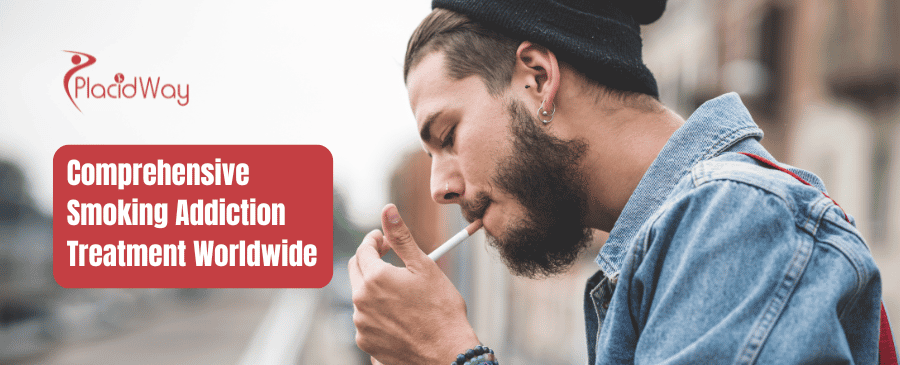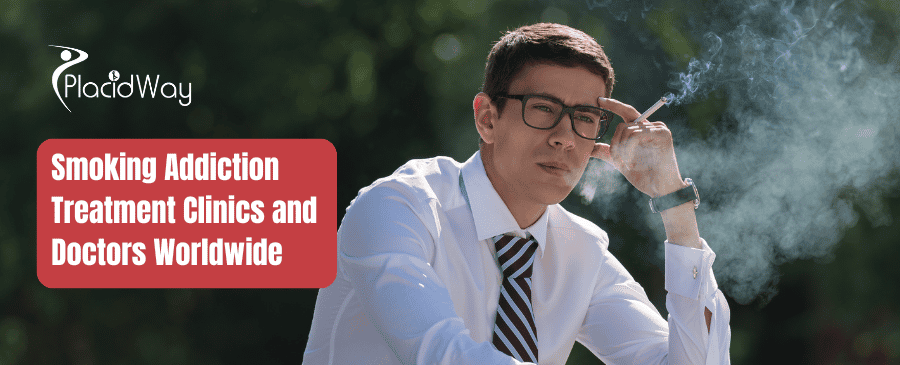

Smoking addiction, driven primarily by nicotine dependency, poses significant health risks and challenges for individuals trying to quit. Nicotine is a highly addictive substance found in tobacco products, which leads to a physical and psychological dependence that can be difficult to overcome. Smoking addiction is associated with numerous health problems, including heart disease, lung cancer, and chronic obstructive pulmonary disease (COPD). Effective smoking addiction treatment involves a combination of medical interventions, behavioral therapies, and supportive measures designed to address both the physical and psychological aspects of the addiction.
Smoking addiction is characterized by a strong, persistent urge to smoke tobacco products, despite awareness of their harmful effects. Nicotine addiction occurs because nicotine affects the brain’s reward system, leading to feelings of pleasure and relaxation. Over time, the brain becomes reliant on nicotine to function normally, making it challenging for individuals to quit smoking. This addiction often manifests in frequent cravings, withdrawal symptoms when not smoking, and a habitual pattern of smoking that becomes ingrained in daily routines.
|
Genetic Predisposition: A family history of smoking or nicotine addiction can increase the likelihood of developing a smoking addiction. Environmental Factors: Growing up in an environment where smoking is common or socially accepted can contribute to the initiation and continuation of smoking. Psychological Factors: Stress, anxiety, and depression can drive individuals to smoke as a coping mechanism, reinforcing the addiction. Social and Peer Pressure: Being surrounded by peers or social groups who smoke can lead to experimentation and eventual addiction. Habitual Behavior: Smoking often becomes a part of daily routines and habits, making it difficult to break free from the addiction. Marketing and Advertising: Tobacco companies’ marketing strategies can influence smoking initiation and addiction, especially among young people. Stress and Trauma: High levels of stress or traumatic experiences can increase the likelihood of using smoking as a means of relief or escape. |
|
Persistent Cravings: Intense and frequent urges to smoke, often occurring throughout the day. Increased Tolerance: The need to smoke more frequently or in larger amounts to achieve the same level of satisfaction. Withdrawal Symptoms: Physical and psychological symptoms such as irritability, anxiety, depression, and difficulty concentrating when not smoking. Neglect of Responsibilities: Prioritizing smoking over important responsibilities, such as work or personal obligations. Financial Strain: Spending significant amounts of money on tobacco products, leading to financial difficulties. Social Isolation: Withdrawing from social activities or relationships due to smoking-related behaviors or stigma. Health Problems: Experiencing health issues such as chronic cough, shortness of breath, and frequent respiratory infections. Relapse: Difficulty in maintaining smoking cessation efforts and returning to smoking after attempts to quit. |
|
Nicotine Replacement Therapy (NRT): Includes products like nicotine patches, gum, lozenges, and inhalers that provide a controlled dose of nicotine to ease withdrawal symptoms and cravings. Bupropion (Zyban): An antidepressant that also helps reduce nicotine cravings and withdrawal symptoms by affecting brain chemicals related to addiction. Varenicline (Chantix): Works by stimulating nicotine receptors in the brain, reducing cravings and withdrawal symptoms while also decreasing the pleasure derived from smoking. Clonidine: Originally used for high blood pressure, clonidine can help manage withdrawal symptoms and reduce cravings. Nortriptyline: An antidepressant that may be prescribed to help with smoking cessation by alleviating withdrawal symptoms and cravings. |
|
Improved Health: Quitting smoking reduces the risk of serious health conditions such as heart disease, stroke, lung cancer, and respiratory diseases. Enhanced Quality of Life: Individuals experience improved overall well-being, including better physical fitness, increased energy, and improved taste and smell. Financial Savings: By eliminating the cost of tobacco products, individuals can save a significant amount of money, which can be redirected towards healthier pursuits. Reduced Secondhand Smoke Risks: Quitting smoking eliminates the risk of exposing others to harmful secondhand smoke, benefiting family members and loved ones. Better Mental Health: Successful smoking cessation can lead to improved mood, reduced stress, and decreased anxiety and depression. Increased Longevity: Quitting smoking can significantly increase life expectancy and reduce the likelihood of premature death. |

|
Best Smoking Addiction Treatment Centers and Doctors Worldwide |
|
|
Top Smoking Addiction Treatment Packages Worldwide |
|
|
Country |
Average Cost (USD) |
|
Costa Rica |
$2,500 - $6,000 |
|
Mexico |
$2,000 - $5,500 |
|
India |
$1,800 - $4,500 |
|
Cuba |
$2,000 - $5,000 |
|
Assessment and Diagnosis: Obtain a thorough evaluation from a healthcare professional to assess the severity of the addiction and any co-occurring conditions. Insurance and Costs: Verify your insurance coverage and understand the costs associated with different treatment options. Support Systems: Build a strong support network of family, friends, or support groups to provide encouragement and accountability during recovery. Commitment to Treatment: Be prepared for a commitment to both the initial treatment and ongoing maintenance to achieve and sustain smoking cessation. Withdrawal Management: Understand that withdrawal symptoms can be challenging and ensure the treatment facility provides effective support and management. Aftercare and Relapse Prevention: Ensure that the treatment plan includes aftercare services and strategies to prevent relapse and support long-term success. Confidentiality: Choose a treatment center that ensures privacy and confidentiality throughout the recovery process. |
If you or a loved one is struggling with smoking addiction, seeking professional help is essential for achieving lasting recovery. PlacidWay Medical Tourism connects you with top-rated treatment centers and experienced professionals specializing in smoking addiction treatment. Book a consultation today to explore your options and find the right treatment plan tailored to your needs. Let PlacidWay guide you on the path to a healthier, smoke-free life, providing the support and resources necessary for a successful recovery.